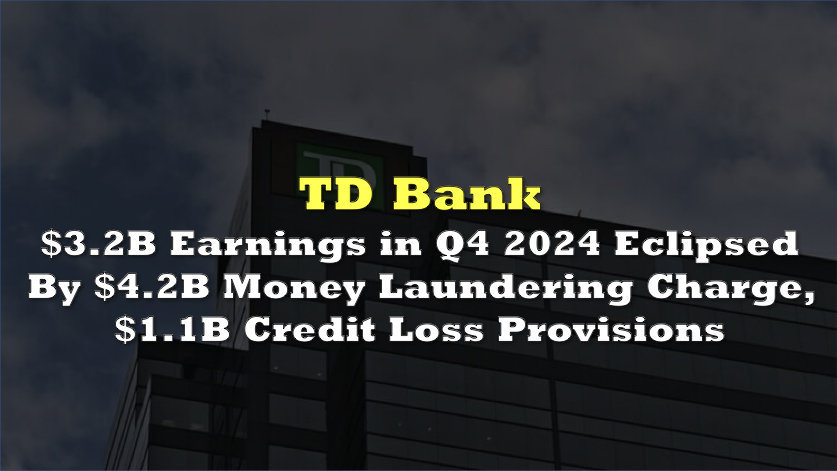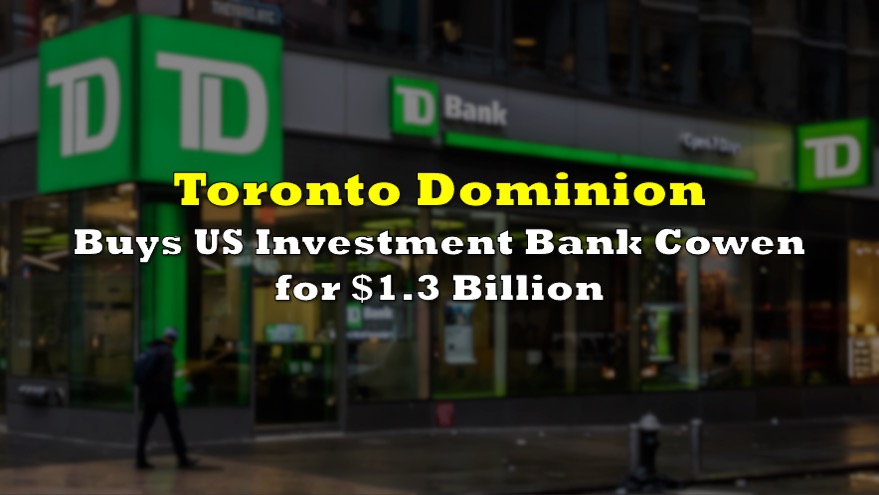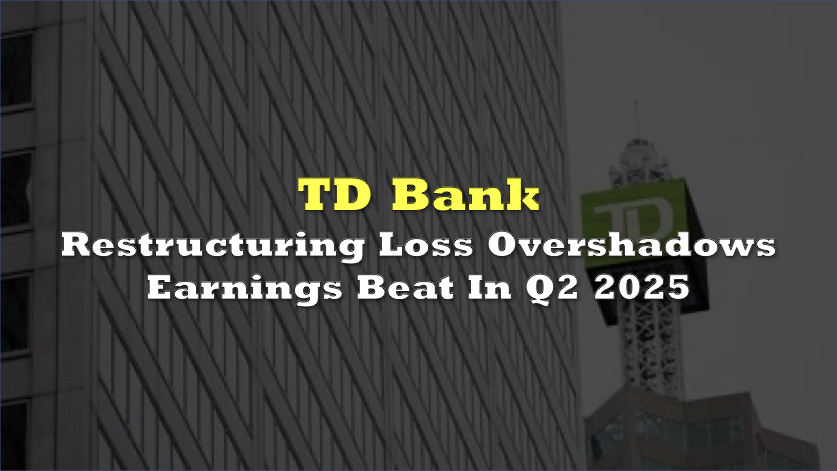TD Bank Group (TSX: TD), Canada’s second largest bank and the sixth largest in North America, finds itself embroiled in a significant legal battle as it confronts allegations of transnational money laundering, bribery, and involvement in fentanyl trafficking. The bank recently disclosed plans to allocate hundreds of millions of dollars to cover potential fines stemming from an ongoing anti-money laundering (AML) compliance investigation in the United States.
The bank has initially allocated US$450 million to cover potential fines. According to a report, analysts at Jefferies, a financial services company, suggest that TD may need to increase its reserves to cover penalties, potentially reaching a multi-billion dollar range, which would make it one of the largest fines ever issued.
While earlier assessments downplayed the severity of the issue, recent revelations have prompted a reassessment. Analyst John Aiken of Jefferies notes that TD’s involvement in alleged money laundering schemes, particularly linked to Chinese crime groups laundering fentanyl proceeds, could have far-reaching consequences. The allegations include laundering hundreds of millions of dollars through the bank, with some transactions involving bribery of bank employees.
The investigation, spearheaded by the U.S. Department of Justice, indicates a concerning trend for TD, which is also facing scrutiny in Canada. In April, the bank was fined $9 million by FINTRAC, Canada’s financial intelligence agency, for AML compliance failures. Although smaller in comparison to potential U.S. fines, the penalty highlights a pattern of lapses in regulatory compliance.
Aiken suggests that the actual fine could exceed US$2 billion, reflecting the scale of the issue and the time required to implement effective preventive measures. While TD remains well capitalized, the potential fine could hamper its expansion plans in the United States, leading to what Aiken describes as a “lost decade” for the bank.
The allegations against TD also shed light on broader issues of money laundering in Canada, with techniques such as the “Vancouver Model” coming under scrutiny. This model involves laundering proceeds through casinos before funneling them into low-scrutiny investments, contributing to inflated real estate prices and raising concerns about the integrity of financial institutions.
“I regret that there were serious instances where the Bank’s AML program fell short”
In response, TD Bank CEO Bharat Masrani issued a statement addressing the media reports surrounding its AML program on Friday after the close of markets.
“Criminals relentlessly target financial institutions to launder money and TD has a responsibility and an obligation to thwart their illegal activity,” Masrani affirmed. “I regret that there were serious instances where the Bank’s AML program fell short and did not effectively monitor, detect, report or respond. This is unacceptable and not in line with our values. As we have previously said, these matters are not in any way related to TD’s good faith dealings with our customers.”
Masrani outlined that a comprehensive overhaul of TD’s U.S. and global AML program is already underway, with the bank investing over $500 million in program remediation and platform enhancements. The bank has also taken several key steps in this endeavor:
- Hiring Recognized AML Executives: TD has brought in experienced AML executives from both the private and public sectors to provide leadership and guidance.
- Onboarding AML Professionals: The bank has onboarded hundreds of new AML professionals, equipped with expertise in program design, oversight, and execution.
- Implementing Training Programs: New enterprise-wide training and onboarding programs have been deployed to enhance program performance and consistency.
- Investing in Technology and Processes: Significant investments have been made in new technology, processes, and controls to strengthen oversight across the enterprise. These efforts have led to heightened account monitoring, accelerated escalations, and new activity prohibitions.
Masrani emphasized that these efforts have yielded tangible improvements, but acknowledged that there is still more work to be done.
“We continue to cooperate closely with our regulators to accelerate our progress and meet our obligations,” said Masrani.
TD last traded at $76.14 on the TSX.
Information for this briefing was found via Sedar, Better Dwelling, and the sources mentioned. The author has no securities or affiliations related to this organization. Not a recommendation to buy or sell. Always do additional research and consult a professional before purchasing a security. The author holds no licenses.









